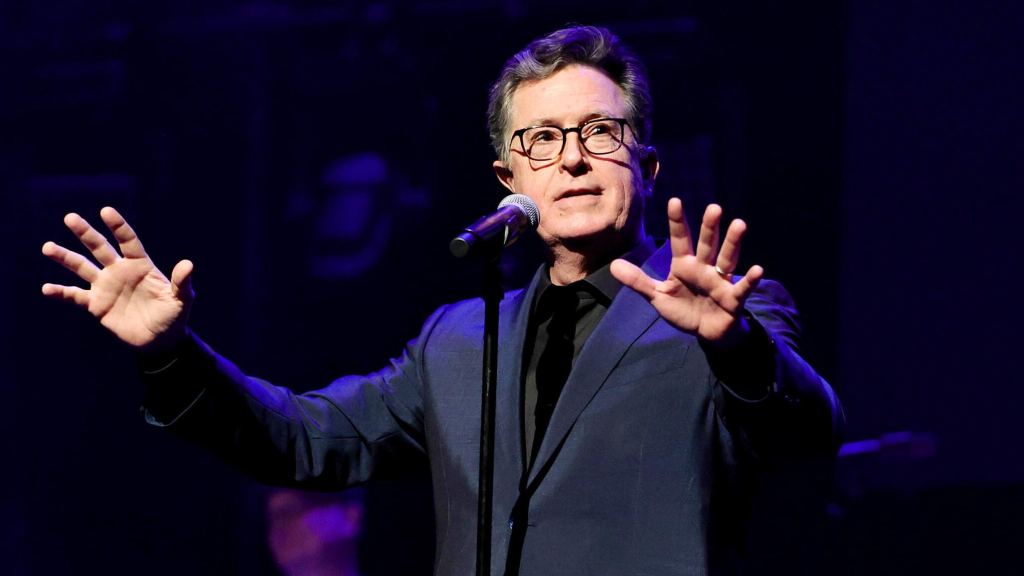Colbert proved he’s a class act by making his acceptance speech about the people who have helped him over the years
Sometimes it’s not the loudest voice, but the one that meets adversity with honesty, humility, and integrity, that resonates the most. Stephen Colbert’s recent Emmys win—and how he used that moment—offers a masterclass in rising above pressure, criticism, and uncertainty. His speech, and his response to The Late Show’s cancellation, reveal several powerful truths about the moral high ground and what it looks like in practice.

Context: The Late Show with Stephen Colbert won its first Emmy
- CBS announced in July 2025 that The Late Show with Stephen Colbert will be canceled in May 2026, ending its 10-year run under Colbert’s stewardship. The stated reason: financial. Critics have speculated about political undercurrents, especially in light of Colbert’s recent criticisms of Paramount Global (CBS’s parent company) and its settlement with Donald Trump.
- Despite its impending end, The Late Show won Outstanding Talk Series at the 77th Emmy Awards—its first win in that category—plus an award for directing. Colbert accepted the Emmy with grace, giving thanks, acknowledging his team, reflecting on love and loss, and urging strength and integrity.
What ‘higher ground’ looked like in Colbert’s speech
- Gratitude instead of bitterness: Colbert didn’t use the win to negotiate blame. He thanked his network, his staff, his family, and the audience. He used his platform to acknowledge loss (both of the show and of his late assistant, Amy Cole), without spite.
- Honest recognition of hardship: He didn’t pretend everything was rosy. He spoke of days when the “universe has not conspired” to deliver material, when things seem against you. Yet those hard days, in his telling, are among the highlights—for how his team pulls together. It’s a recognition that struggle is part of meaningful work.
- Focusing on what you can control: Instead of speculating about what may or may not have motivated the cancellation, Colbert chose to focus on what he and his colleagues could do—land the plane. He’s committed to doing the final season well, to staying present in the work, and to enjoying the process.
- Maintaining integrity during criticism: Colbert had recently called out actions by Paramount that he felt were ethically questionable—the $16 million settlement and connections to the Trump administration. When faced with cancellation shortly after, he did not retreat from those criticisms. He didn’t resort to mudslinging or defensiveness, but he did stand by his beliefs.
- Leaving a legacy over chasing immediate vindication: Colbert invoked the lineage of late-night television (Carson, Letterman, Paar, etc.), and expressed pride in contributing justly to that tradition. He seems more concerned not with being right now, but with being remembered—and with what he’s done, who he’s been. Legacy over momentary triumph.

Why It Matters to “Take the Higher Ground”
- Strength of character: Choosing the higher route builds trust—not just in audiences, but among colleagues and peers. It shows that you’re motivated by something beyond just reacting or winning arguments.
- Resilience in the face of setbacks: Adversity often reveals what we value. Staying composed under strain preserves your sense of purpose. It’s one thing to succeed; it’s another to succeed with dignity.
- Amplification of message: When you maintain integrity, your voice often carries more weight. Colbert’s win, under the cloud of cancellation, feels like more than an award. It feels like affirmation—not just of talent, but of the stance and values one has shown over time.
- Sustaining relationships: Gratitude, recognition, respect for those who helped you, tends to leave doors open. When your finish is honorable, people will reflect on the journey, not just the outcome.
- Personal peace: There’s a difference between winning at any cost, vs. knowing you did what was right along the way. In Colbert’s case, he seems to find solace in the fact that he’s doing work he loves, with people he respects. Savoring the present rather than being haunted by the future.
Assertiveness, not passiveness
Taking the higher ground doesn’t mean being passive. It doesn’t mean suppressing dissent or refusing to address injustice. What Colbert’s example shows is that you can stand firm—be honest, hold your convictions—and yet respond with humility, gratitude, and a long view. That path is harder, especially when the stakes are high. But it’s also what transforms difficult moments into respected ones, and endings into meaningful transitions.
Hi there! I’m Brenda. A thirty something year old millennial who loves all things travel and fashion. Happy to share my tips and tricks when it comes to booking flights as well as dressing up.
Leave a Reply